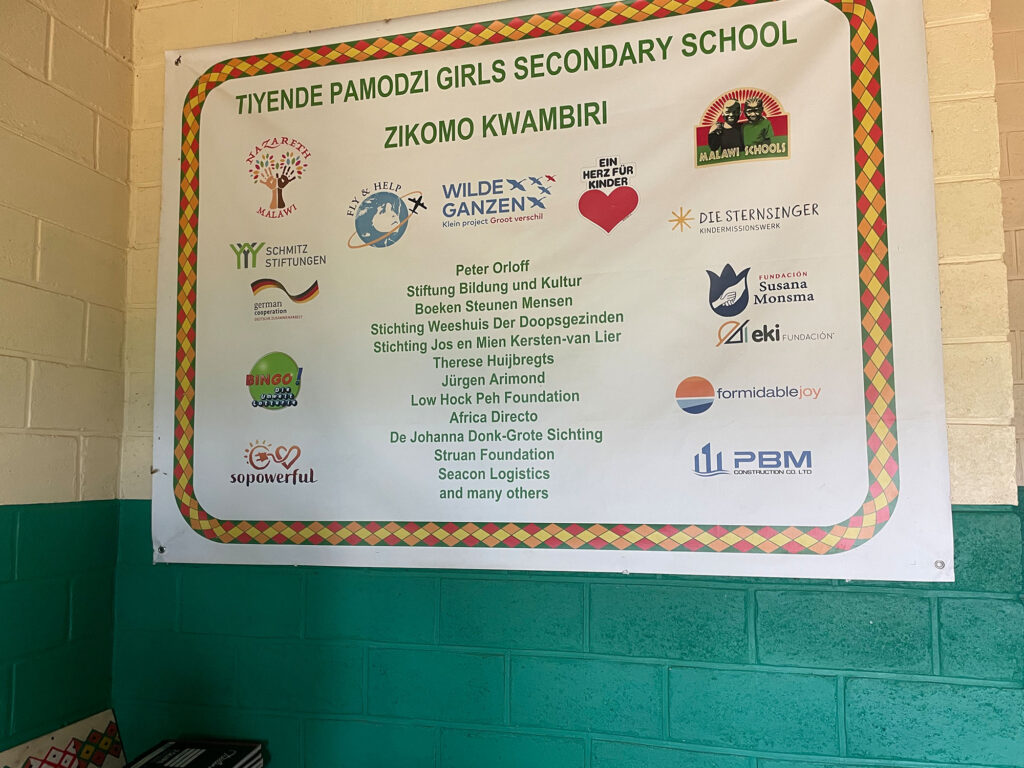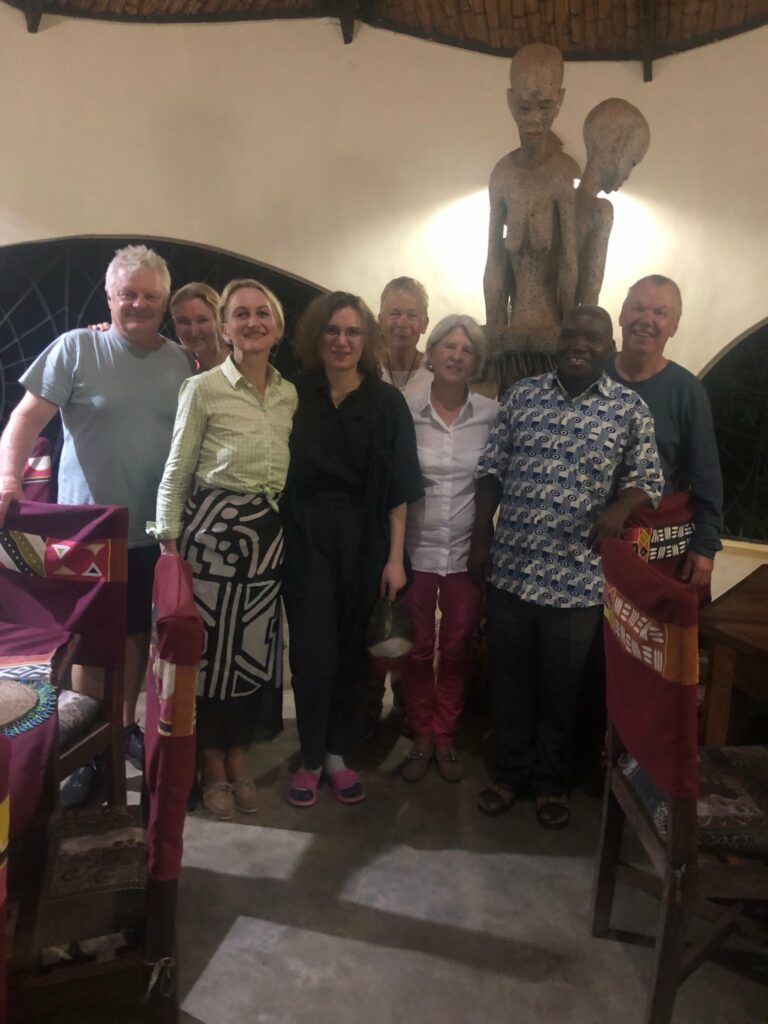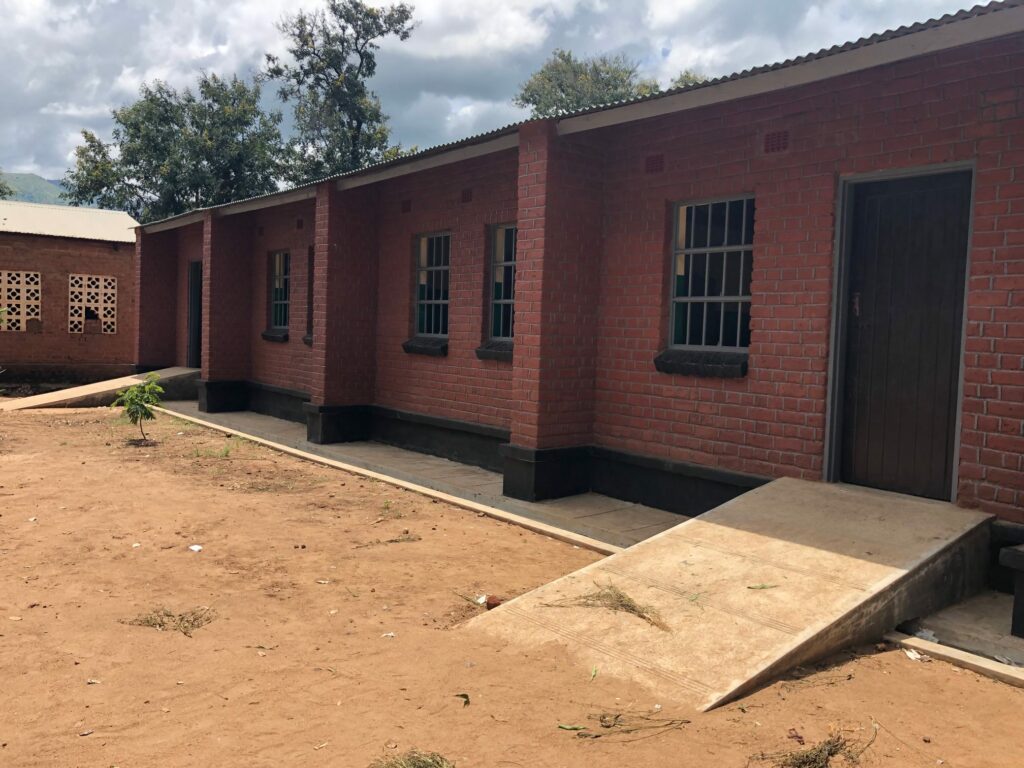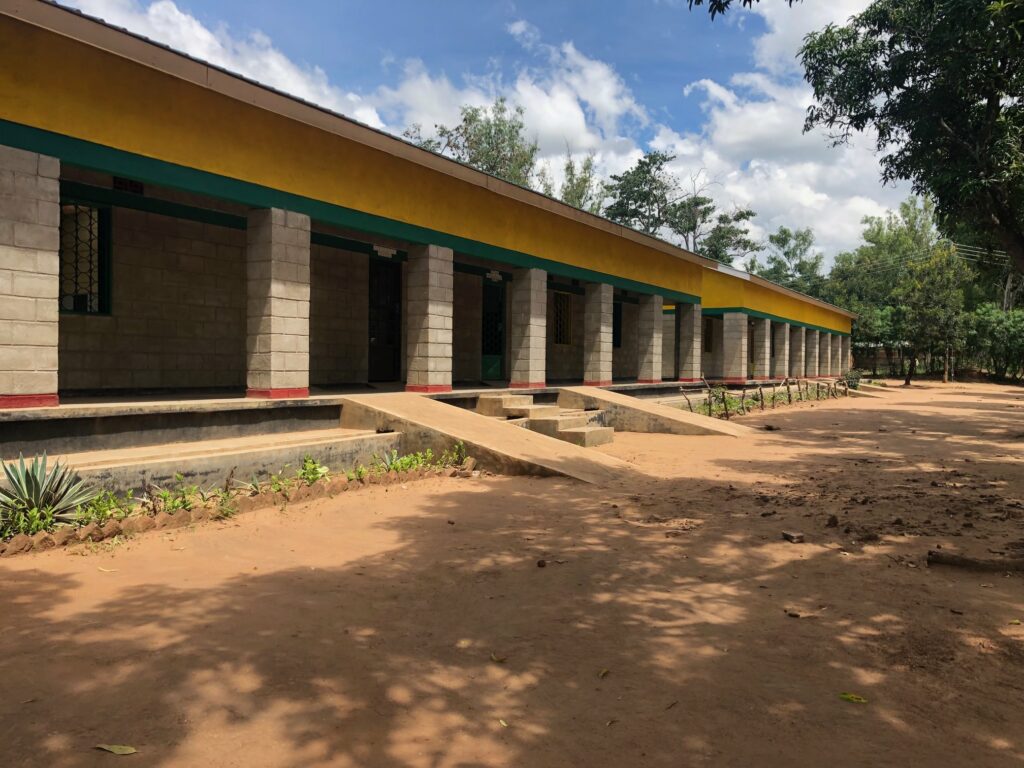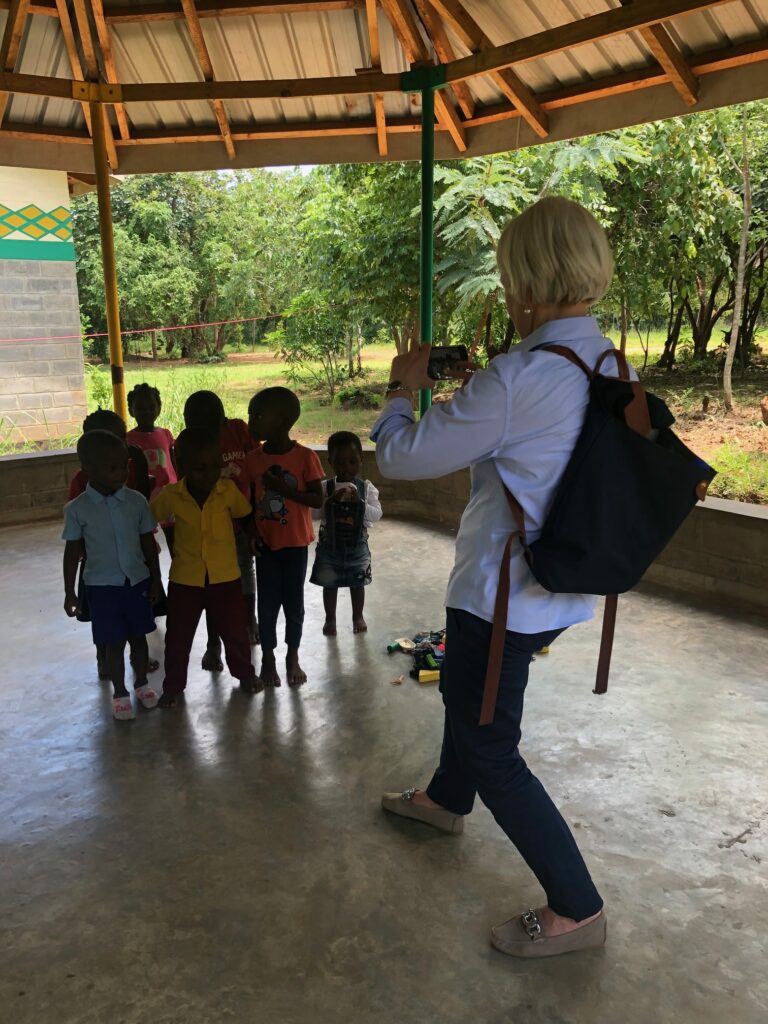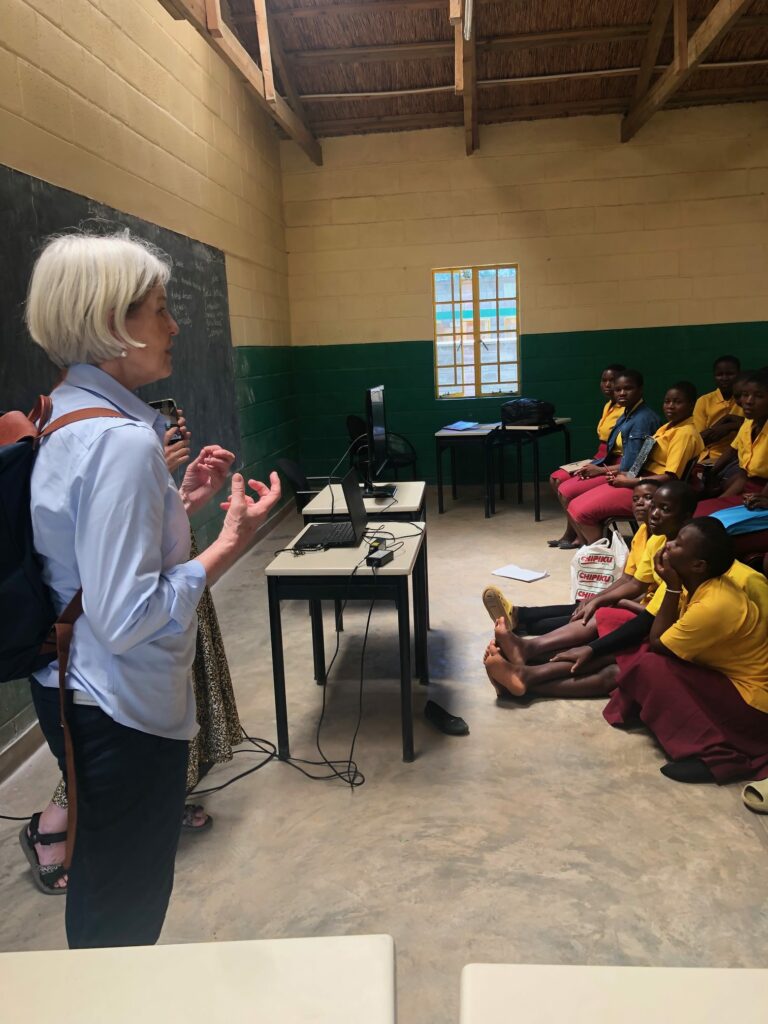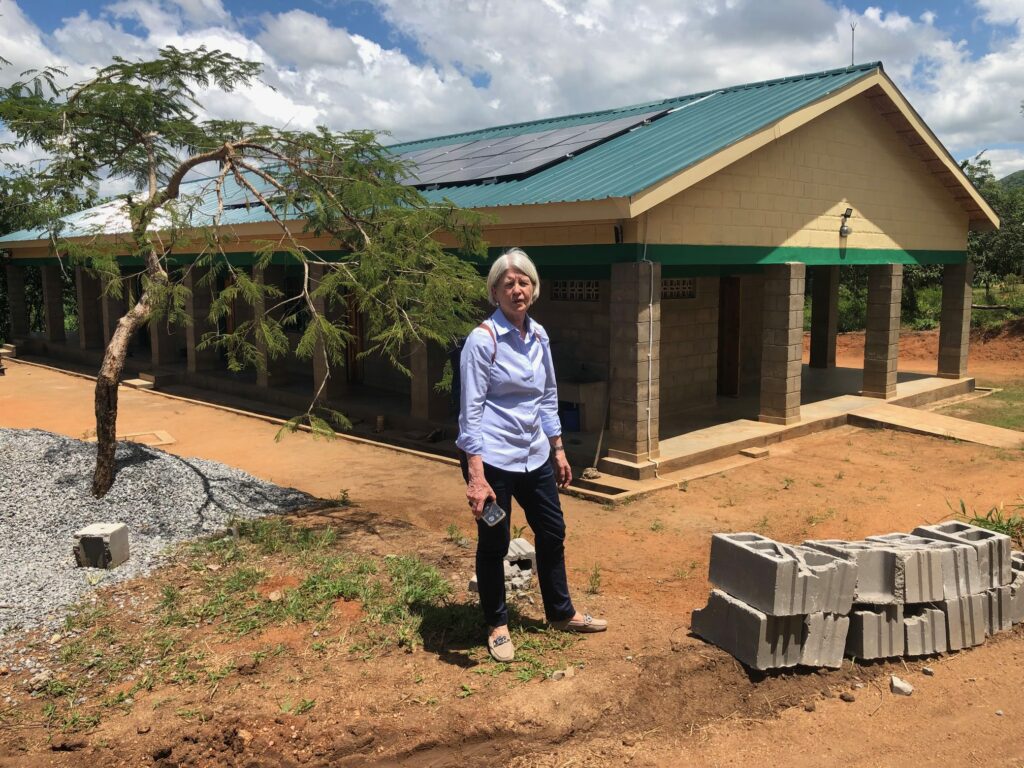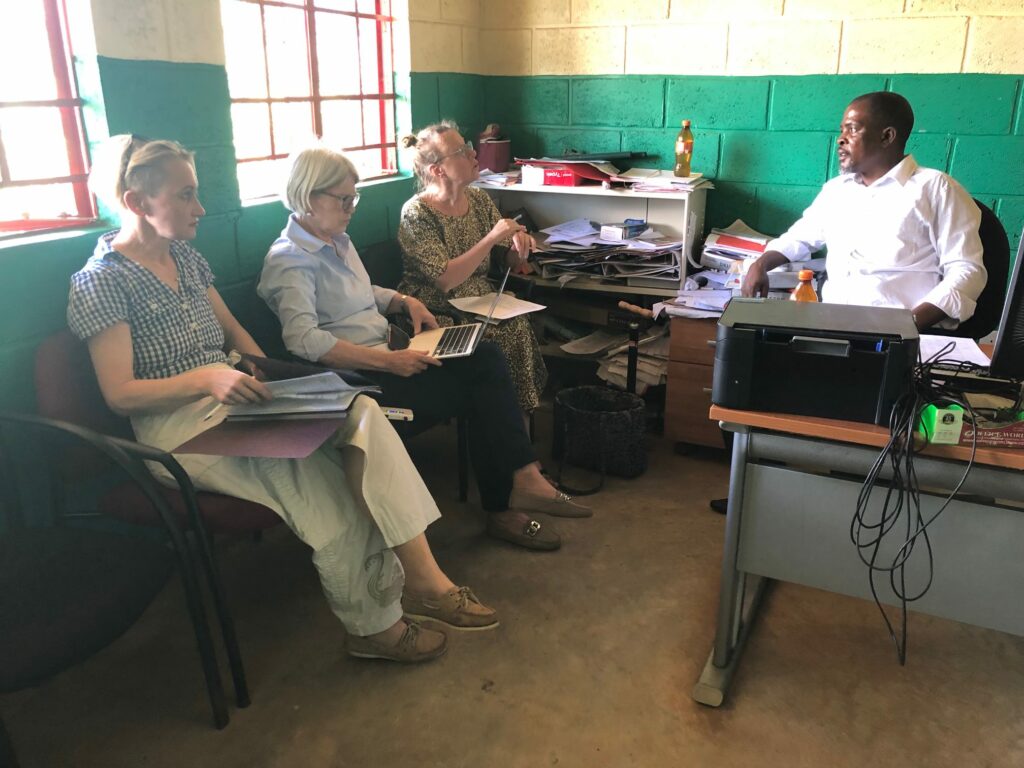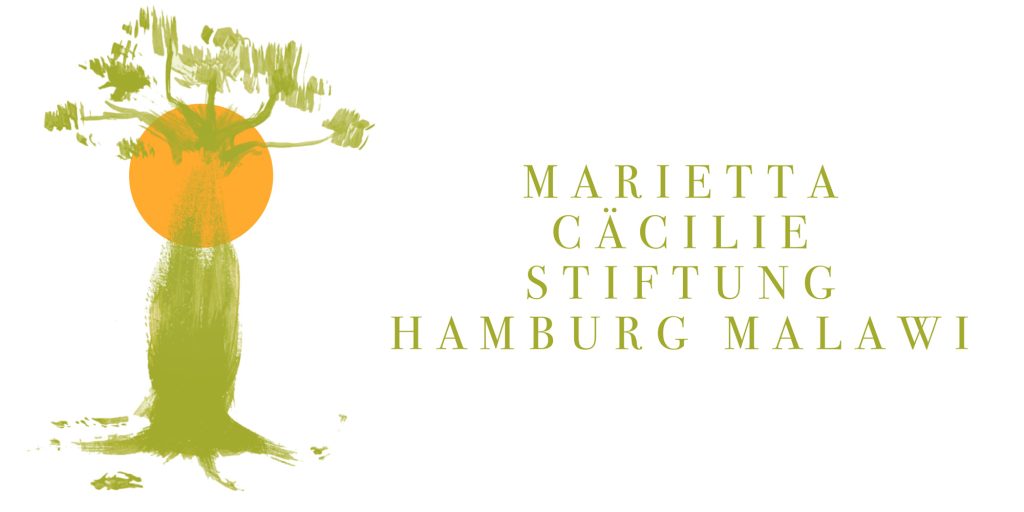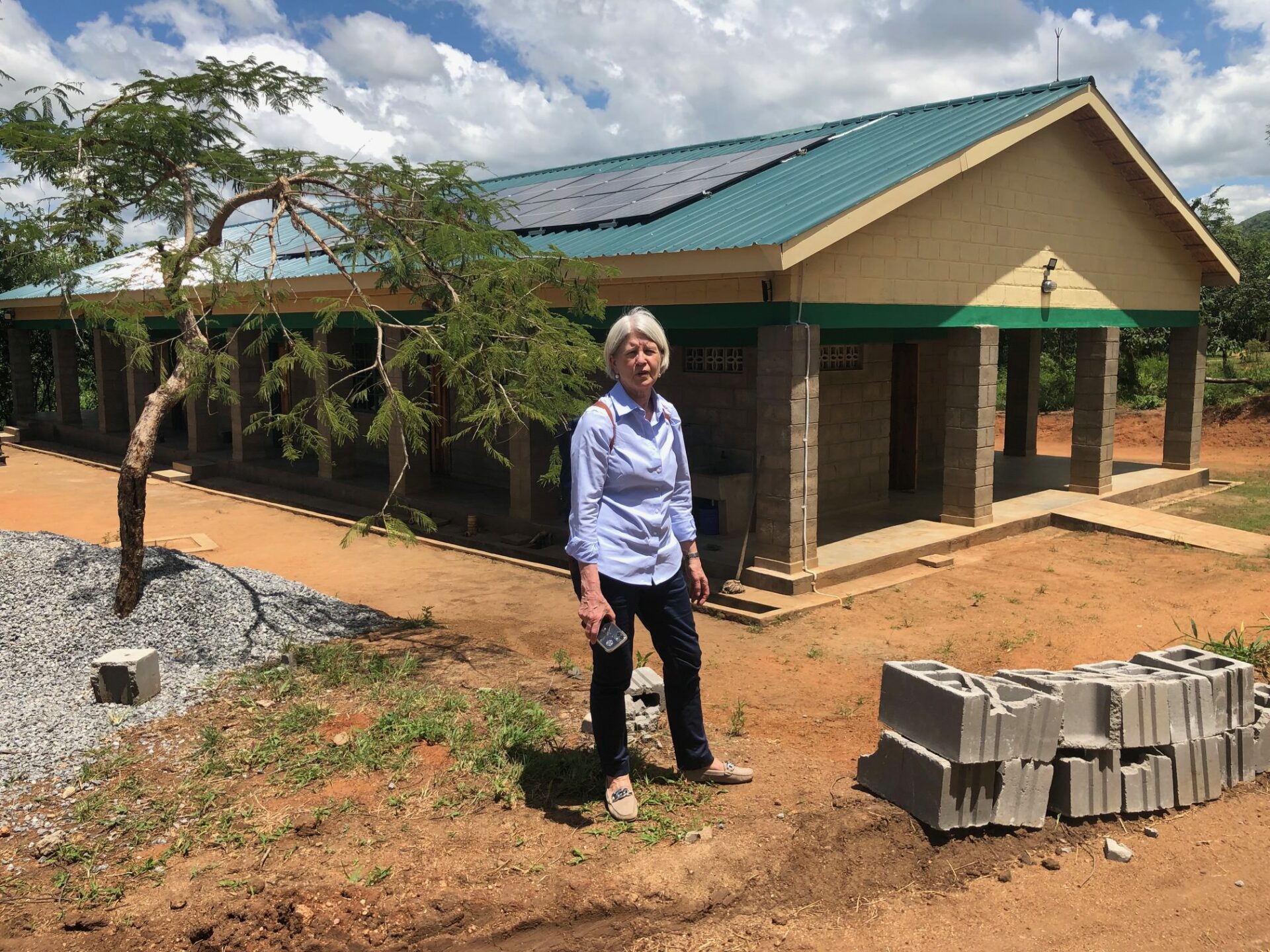Day 5 in Malawi 14.3. 2025
Today I’m going on a trip to Nganja to Tiyende Pamodzi Girls Secondary School with my friend Cäclie. The distance is no more than 20 kilometers. But in Malawi, kilometers count differently. It takes us almost an hour to cover the distance. The whole program again – pedestrians uninhibited in traffic, bicycles and oncoming traffic in their own lane. But it’s bright, the sky is blue. Only the subtropical humidity is getting to us.
Arriving at the school, which I already know from a previous visit, I am once again amazed by the modern building in attractive colors. The classrooms are well furnished and the girls’ blue and yellow school uniforms complete the orderly impression. The deputy principal welcomes us with obvious pleasure. This is understandable, as we are bringing much-needed money with us. The beautiful building should not hide the school’s serious financial problems. The government of this poverty-stricken country can hardly provide any support, and the parents even less so. This is where international NGOs are needed, which are having a beneficial effect throughout the country. Three Rotary clubs in northern Germany – including mine – will support the school with a not inconsiderable sum with the help of the Rotary Foundation in Chicago. Together with Mr. Yona, we go through the list of things and measures that are to be financed by the Rotary money. It is an incredible boost for the school for 12-18 year old girls. Computers, learning materials, beds for the boarders… Many of them can’t manage the long journey and have to spend the night at school during the week. It is not uncommon for the very young girls to become pregnant, as they often live in the village community unprotected by their parents. That is why there is a crèche so that even the youngest children can come along. Once again, we are urgently telling the schoolgirls how important their education is, the gateway to a self-determined life. Even pregnancy must not interrupt this path.
We see young girls who are very eager to learn and who have understood what an opportunity this school offers them. We can only hope that they remain motivated, that they don’t take a wrong turn at some point on their hard path.
In the early afternoon, we return to the hospital, where our tireless Swedish friends have been operating again since the early morning. I immediately take my place in the recovery room. In front of me lies a 12-year-old boy with the most severe burns, which he sustained in a fire at the age of 2. His neck, right arm and chest are completely covered in scars. There is almost nothing left of his right hand. The large areas of scarring restricted his freedom of movement indefinitely for ten years. He could neither move his right arm nor turn his head. In a lengthy operation, the doctors largely exposed his arm. To do this, they had to transplant several pieces of skin. This gave him a great deal of freedom of movement, as well as freedom from pain and more independence. His very young mother sat with me on his couch, overwhelmed by what was happening to her son. The anesthesia, the deep sleep, worried her greatly. At last he opened his eyes and looked at his mother, who addressed him as “Prince”. What a name for such a damaged child. He is her prince. These are the moments that stay with me.
As I ate my evening meal in my yawningly empty lodge, a German couple sat at the next table. It’s a bit like meeting a polar bear in this African headlock, I thought.
It took a few minutes and we were talking. It turned out to be the chairwoman of the German-Malawian Society and her husband – a university professor who teaches in Cape Town. A couple who have been very involved in the interests of this country for years, who maintain many contacts in the country and are very well informed about the current situation. A voluntary commitment! I was also able to immediately add this couple to my collection of very impressive personalities on this trip.
